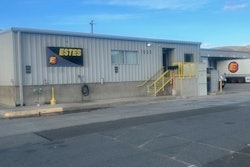Aaron Huff is technology editor of Commercial Carrier Journal.
E-mail [email protected]
When Mike Davis recently participated in a bid package from a major manufacturer, he was optimistic that rates might actually go up since several competitors are no longer in business.
Davis’ company Davis Specialized Carriers, a 40-truck carrier based in Halifax, Nova Scotia, that operates throughout North America, submitted bids on about 30 of the 300 lanes. After collecting the bids, the shipper began the first round of the auction by e-mailing the winning prices on each lane to the bid participants. To participate in the second round, carriers had to submit lower prices than the anonymous winning bids.
“The numbers that came back in round one were so low, just terribly, terribly low,” Davis says. “It really makes you wonder ‘what planet are these people on? They throw a piece of freight out there like raw meat and watch the dogs fight over it. It’s not worth it. No one wins.”
Davis doesn’t blame the technology behind these auctions, but it’s sometimes difficult to appreciate technological innovations that shippers use to execute the bidding process. In the past few years, dozens of shippers have began using software that enables carriers to submit conditional prices for one lane that depend upon the percentage of freight volume or traffic they receive from other lanes.
I2, Manguistics, FreeMarkets, Schneider Logistics and Logistics.com, which was acquired by Manhattan Associates last year, are several well-known software vendors that offer bid optimization software with these conditional or combination bid structures.
Shippers are showing savings of between 5 to 25 percent on transportation costs in certain lanes as a result of using this software, says Clint Plummer, who previously was part owner of a small trucking company and now is pursuing a Master of Engineering in Logistics at the Massachusetts Institute of Technology. With the endorsement of the American Trucking Associations, Plummer has developed the Technology and Maintenance Council/MIT Truckload Survey to help improve the understanding of the effects of package bidding by truckload carriers on the marketplace.
Carriers have become savvy at using conditional bidding, Plummer says. “What we’re finding more and more is that carriers are using bids to put together lanes that help them to get more density and balance their network.” A carrier can, for example, submit low prices on some lanes going into a city that they already have a lot of freight going out of, and bundle that together with lanes that they do not have as much cost advantage in to submit competitive prices that turn out to be win-win scenarios.
“Because of existing freight balances, most carriers have certain lanes that they can service more economically than others,” Plummer says. “The intent of auctions is to reveal those advantages and award balancing freight to those carriers’ networks.”
The concept of a combination bid is no longer a novelty, however. More shippers are beginning to use a combination bid package without investing in the advanced software, says Robert Gadoua, executive vice president of Canadian American Transportation, a 300-truck carrier based in Quebec. Gadoua says that shippers already know what lanes carriers want, and are therefore offering their good lanes – their cherries – on the condition that carriers also take the bad lanes – the pits – that go with them.
“As a whole, it is catching on everywhere. It’s not specific to these guys,” Gadoua says in reference to the two bid packages he’s used before from FreeMarkets and Logistic.com’s OptiBid. “It makes sense for the shipper to do it that way. We’re seeing it more and more.”
Plummer will be publishing several papers this summer as part of his graduate work at MIT, including recommendations on how shippers and vendors can improve the bidding process for truckload carriers.
The TMC/MIT Truckload Pricing Survey is available online at this site. As a reward for filling out the survey, carriers will get a free copy of the survey analysis, available this summer. Plummer says carriers can use the survey analysis to examine better strategies for pricing packaged bids.
To download the PowerPoint presentation regarding package bidding that Clint Plummer delivered at the Technology and Maintenance meeting in March, click here. Warning: This file is large and may cause problems if you are on a dialup connection.









